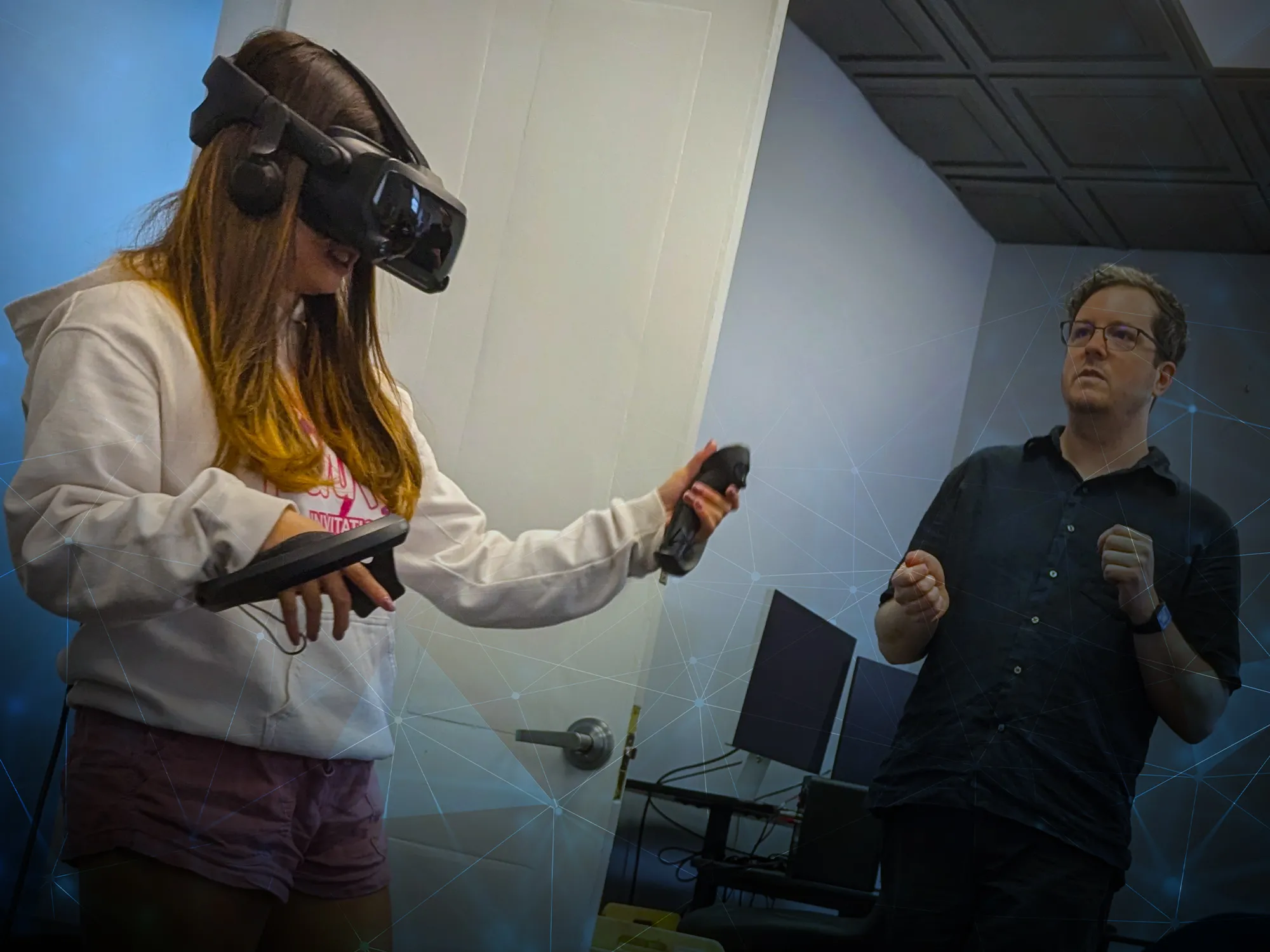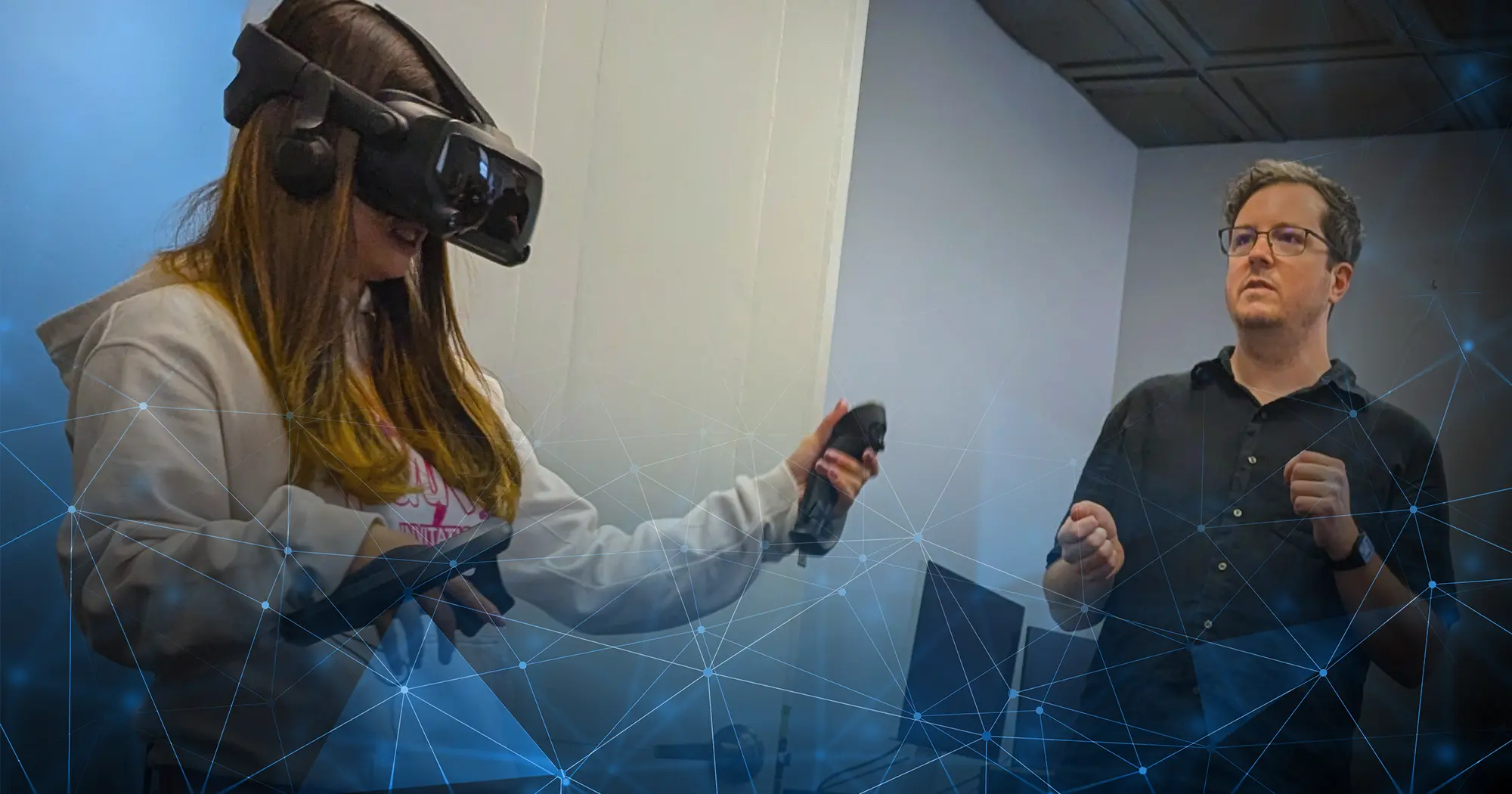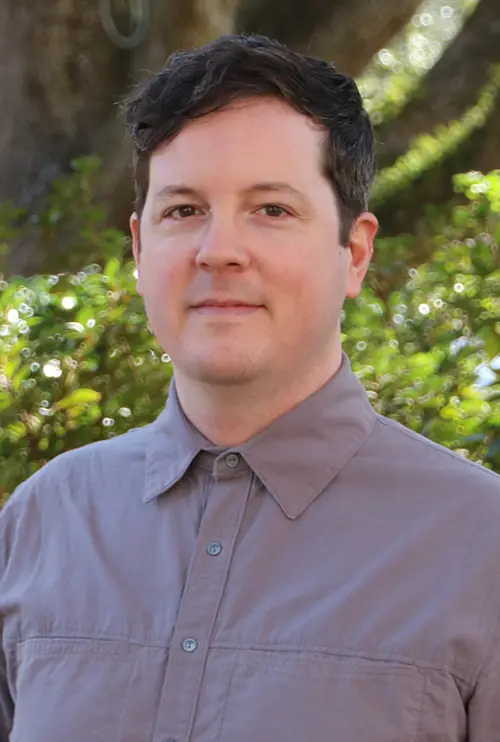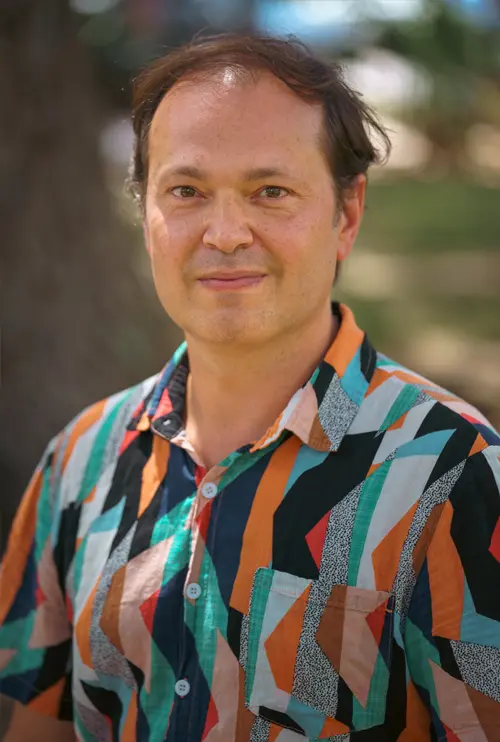

Originally published in the 2024 issue of the School of Liberal Arts Magazine
As the boundaries between traditional academic disciplines continue to blur, Tulane’s School of Liberal Arts has embraced an interdisciplinary approach to teaching creative technologies. Department of Music Senior Professor of Practice Rick Snow and Professor of Practice in Digital Media Practices Jon Chambers are helming this innovative curriculum, offering courses that blend the arts, computing, and critical theory.
Chambers brings his experience as a new media artist to his courses in game design and data visualization. Courses like Game Studio, Educational Game Design, and Personal Data Visualization explore the technical and creative aspects of game development and the ways in which we see data as influential as its content. According to Chambers, the hands-on, project-based nature of these classes is key. “Earlier in the semester, students learn the skills for game-making and creative coding through in-class workshops, then they’ll need to complete assignments outside of class,” he said. “As we get closer to major project due dates, there will be more in-class studio time so that I can provide direct mentorship.”
This blend of instruction and independent work helps students develop a diverse skill set, from coding and visual design to creative problem-solving. “These skills can be applicable to graphic design, web design, the film industry, interactive exhibit design, virtual reality development, and even fields like education and data science,” Chambers noted.
In a nearby classroom, Snow leads a similar charge with his Algorithmic and Computer Music course. His background in composition and electronic music informs an approach that encourages students to explore the intersection of technology, sound, and artistic expression. Recent focus areas have included immersive sound composition, public multimedia installation design, and a musical robot project.
Both instructors emphasize the importance of hands-on learning. “We spend a lot of time in the computer lab, experimenting with different techniques and troubleshooting issues as they arise,” says Snow. “But I also want students to engage with the critical and theoretical aspects of this field, considering the societal implications of algorithmic music and its role in contemporary culture. The goal is to empower them to become not just consumers of technology, but active producers and creators.” Chambers agreed, adding, “This intellectual rigor is a hallmark of SLA’s approach, setting it apart from more technically focused programs. I encourage students to question assumptions, to push the boundaries of what we consider ‘music’ or ‘games’.”


“Although these courses are firmly situated in the School of Liberal Arts, they have attracted students from across the university, including from the School of Science and Engineering, as well as from Business, Architecture, and Public Health,” shared Snow.
As technology continues to transform the creative landscape, SLA’s innovative courses in game design and computer music are equipping students with the skills and perspectives needed to thrive in an increasingly interdisciplinary world. “These courses aren’t just about learning software or coding — they’re about developing a critical, creative mindset that can be applied across a wide range of disciplines,” Chambers concluded.

